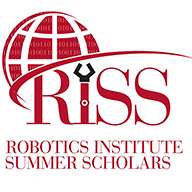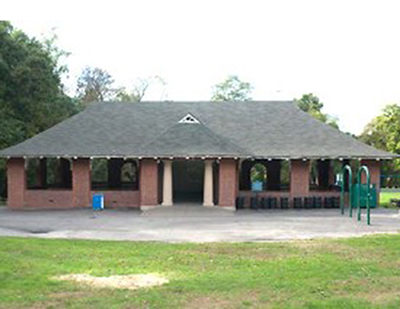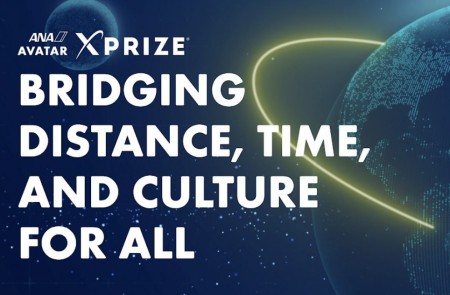RI Summer Scholars Poster Session Today at 3:30pm in the NSH Perlis Atrium
Come celebrate the contributions of the cohort members, mentors, program partners, and volunteers that make the program possible. Refreshments will be served.
Failure Is an Option: How the Severity of Robot Errors Affects Human-Robot Interactions
Abstract: Just as humans are imperfect, even the best of robots will eventually fail at performing a task. The likelihood of failure increases as robots expand their roles in our lives. Although task failure is a common problem in robotics and human-robot interaction (HRI), there has been little research investigating human tolerance to said failures, [...]
Carnegie Mellon University
Extensions of the Principal Fiber Bundle Model for Locomoting Robots
Abstract: Our goal is to establish a rigorous formulation for modeling the locomotion of a broad class of robotic systems. Recent research has identifi ed a number of systems with the structure of a principal fiber bundle. This framework has led to a number of tools for analysis and motion planning applicable to various robotic [...]
2018 Robotics Institute Picnic
Attention: This events time was changed. The original time was 3pm to 7pm, the event is now occurring from 2pm to 6pm. If you had exported the event to add it to your calendar, please be sure to update the time in your calendar appropriately. Private Event: By Invitation Only SOCIALIZE, EAT, DRINK & [...]
Imaging the World One Photon at a Time
Abstract: The heart of a camera and one of the pillars for computer vision is the digital photodetector, a device that forms images by collecting billions of photons traveling through the physical world and into the lens of a camera. While the photodetectors used by cellphones or professional DSLR cameras are designed to aggregate as [...]
Carnegie Mellon University
Lesson Learned from Two Decades of Robotics Development and Thoughts on Where We Go from Here
Abstract: In this talk, Herman Herman will offer various lessons learned from developing various robots for the last 2 decades at the National Robotics Engineering Center. He will also offer his perspective on the future of autonomous robots in various industries, including self-driving cars, material handling and consumer robotics. Bio: Dr. Herman Herman is the [...]
ANA Avatar XPRIZE BRIDGING DISTANCE, TIME, AND CULTURE FOR ALL
"Calling all Carnegie Mellon inventors, creators, and scientists. Are you studying robotics, computer science, psychology, sociology, virtual immersion, sensor technologies, haptics, artificial intelligence or thinking about inventing the future? Have you ever wondered what it would be like to transport your consciousness to another part of the world, and be able to feel the place [...]
Factor Graphs for Robot Perception
Abstract: Factor graphs have become a popular tool for modeling robot perception problems. Not only can they model the bipartite relationship between sensor measurements and variables of interest for inference, but they have also been instrumental in devising novel inference algorithms that exploit the spatial and temporal structure inherent in these problems. I will overview [...]
Carnegie Mellon University
Scaling up Self-Supervision for Robot Learning
Abstract: A general purpose robot will need to interact with objects in cluttered environments with minimal supervision. Machine learning provides methods that can deal with these complex tasks without explicitly modelling the environment. More recently, deep learning techniques combined with large scale data has revolutionized the fields of computer vision, language processing and reinforcement learning. [...]
Towards better methods of video generation
Abstract: Learning to generate future frames of a video sequence is a challenging research problem with great relevance to reinforcement learning, planning and robotics. Existing approaches either fail to capture the full distribution of outcomes, or yield blurry generations, or both. In this talk I will address two important aspects of video generations: (i) what [...]









